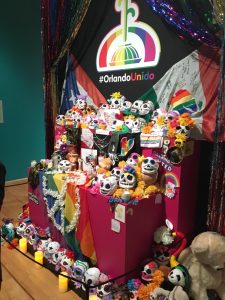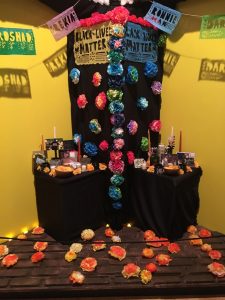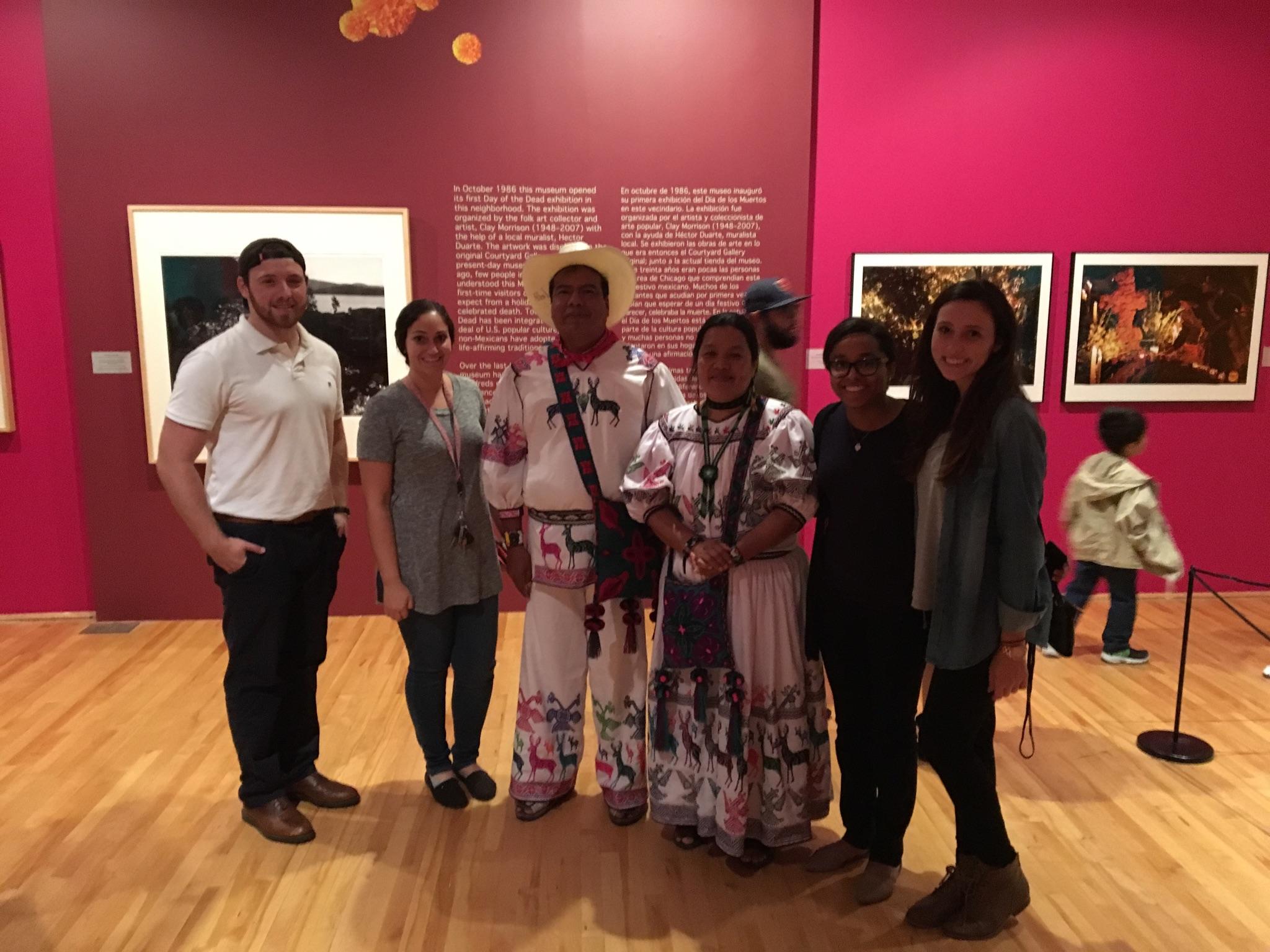As part of the Chicago Teacher Education Pipeline (CTEP) Professional Development and Support Series, Illinois State University student teachers engage in a community engagement project titled Promoting Reflective and Active X-changes In Society (PRAXIS).
The learning exercise supports Illinois State’s preservice teachers’ participation in cultural, civic, and educational events, as well as community-centered service activities in CTEP’s five partner neighborhoods. A major component of CTEP programming is the role community plays in education and the ways in which teachers are a part of a collective effort toward improving the quality of life for all residents. As such, PRAXIS was created out of a need to inspire deeper investment for student teachers in the communities they serve.
Each semester, community-based liaisons compile lists of events in their respective neighborhoods to share with the student teachers. The events range from youth-led peace circles to bike rides with a local politician, and are chosen for their capacity to engage students in authentic, meaningful experiences within CTEP’s partner communities.
Between student teaching, course work, and seminars, Illinois State preservice teachers in Chicago have demanding schedules. Nonetheless, each chooses two events to attend per semester. Once a student participates in an event, she or he writes a brief response on the PRAXIS blog, an online teaching and learning platform used to facilitate a virtual space for reflective and interactive dialogue. Within a week of sharing an entry, students can return to their post to read feedback from community-based liaisons and CTEP staff.
One of the more popular events among PRAXIS participants was Dia de los Muertos: Journey of the Soul, the 30th annual Day of the Dead art exhibition at the National Museum of Mexican Art in Pilsen. The exhibit showcases the indigenous roots and rituals associated with the holiday that honors deceased loved ones. A group of 2016 STEP-UP Fellows attended the opening reception together after a day of student teaching.

Orlando Pulse shooting ofrenda; Dia de los Muertos exhibit at the National Museum of Mexican Art in Pilsen.
Bianca Baez, an early childhood education major, connects the art at Journey of the Soul to recent events and issues that affect Chicago communities. “The exhibit included relevant issues that have been prevalent on the news and that we discussed during STEP-UP,” she said. “Personally, I loved the Orlando Pulse shooting ofrenda. The artist did a great job honoring all of the victims that passed away.”
Lizzy Carroll, a special education major, was also moved by a politically charged art pieced. “My favorite altar was titled Black Lives Matter,” she said. “This altar was dedicated to the #blacklivesmatter movement and honored African-American individuals who have been killed by police officers. It included pictures, candles, and the names of those who have lost their lives.”

Black Lives Matter ofrenda; Day of the Dead exhibit at the National Museum of Mexican Art in Pilsen.
The student teachers made direct connections between this art exhibition and experiences in their respective communities and classrooms. “Many of my students are Mexican-American and continue to celebrate traditions like this one,” said Jasmine Grullon, a middle level education major. “The great thing about all of the artwork was that they were made by local artists within the community, or they were focused on a local community issue or person.”
Grullon is also excited by the opportunity to use art to explore challenging topics in the classroom. Referencing the work dedicated to the victims of police shootings and the Orlando mass shooting, she explained, “Pieces like this can start very engaging conversations with my students.”
Chicago-based faculty witnesses the benefits of including a community engagement component in their courses. Ashley Wolinksi, clinical assistant professor of
Special Education, sees the connections her students make through their participation in the PRAXIS project. “Students in the special education field base group have been completing their PRAXIS activities as part of their Content Strategies, Analysis and Collaboration class,” said Wolinski. “In class, they have been sharing ideas and new learning from the experiences they have had in the communities. They have also shared resources from their PRAXIS experiences with the students they are working with at their sites.”
Still in its pilot semester, PRAXIS offers Chicago student teachers fun ways to connect with the communities where they are serving.

